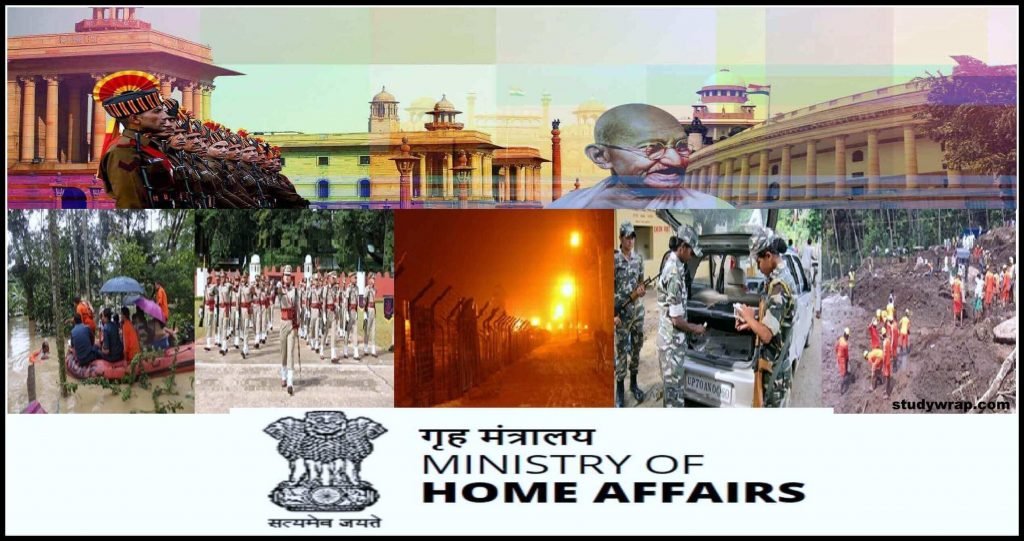The Centre is expected to finalise terms for extending the SoO agreement with 25 Kuki-Zo insurgent groups in a key meeting tomorrow, with discussions focused on tighter oversight of camps and arms.
BY PC Bureau
New Delhi, July 6, 2025 — A crucial meeting convened by the Ministry of Home Affairs (MHA) on Monday may finalize the extension of the Suspension of Operations (SoO) agreement with around two dozen Kuki-Zo armed groups represented by the Kuki National Organisation (KNO) and the United People’s Front (UPF).
The high-stakes meeting will be chaired by MHA Advisor for Northeast Affairs A.K. Mishra, senior Intelligence Bureau officials, representatives of the Manipur Governor, and leaders of KNO and UPF. Talks had ended inconclusively on Friday and will now resume to iron out unresolved issues.
Sources indicate that while there is broad agreement on extending the SoO pact, final contours are being negotiated. These include stricter supervision of cadres confined to designated camps, tighter control over deposited weapons, and relocation or consolidation of SoO camps currently spread across sensitive zones.
READ: Imphal-Based Militant Ran Transnational Gun Smuggling Racket
“We cannot have over 2,000 armed cadres roaming with weapons in the hills. Peace cannot be achieved in such conditions,” said a senior official involved in the deliberations.
Manipur Government Rejoins Talks
In a significant political development, the Manipur government—absent from SoO negotiations since its withdrawal from the pact in 2023—has now rejoined the process. The return of state-level participation follows a year-long impasse triggered by allegations that Kuki-Zo groups violated the ceasefire terms and challenged Manipur’s territorial integrity.
This is the first time since the May 2023 ethnic violence that representatives from the Manipur administration are formally engaging with the SoO process. Their participation is being seen as a step toward political reconciliation and renewed commitment to de-escalation.
Exclusive: Raj Bhavan Steps in as Manipur Rejoins MHA-SoO Talks https://t.co/6xYDAxITp2 #ManipurPeaceTalks #SoORevived
#GovernorBhallaInitiative #KukiZoDialogue
#CeasefireTalks #ManipurUnderGovernor— Navin Upadhyay (@Navinupadhya) July 5, 2025
Why Extending the SoO Makes
The Suspension of Operations (SoO) pact, signed in 2008 between the Government of India, the Manipur government, and several Kuki-Zo armed outfits, has served as a crucial de-escalation tool. Under the agreement, insurgent groups agree to cease armed activity, confine themselves to designated camps, and deposit weapons under lock and key.
Recent recoveries of over 200 illegal firearms during security operations in districts like Tengnoupal and Churachandpur underscore the importance of maintaining a ceasefire framework. Without the SoO in place, security officials warn that the risk of armed confrontation could spike, especially given the fragile post-violence environment in Manipur.
Enabling Dialogue
The ongoing talks between the Union Home Ministry and Kuki-Zo groups since June 2025 have focused on ground rule revisions, camp relocation, and basic logistical challenges like water supply to certain encampments. The SoO agreement has allowed for this structured communication, and extending it would preserve a channel for trust-building and conflict resolution among all stakeholders, including Meitei, Naga, and Thadou communities.
READ: Burnt Homes, Broken Trust: Manipur’s Unrealistic Relief Plan
Over 60,000 people were displaced and more than 260 killed in ethnic clashes since May 2023. A collapse of the SoO could jeopardize the delicate peace process and reignite tensions.
Supporting Rehabilitation
The Manipur government’s phased rehabilitation plan aims to close down nearly 350 relief camps and resettle displaced families by December 2025. Chief Secretary Prashant Kumar Singh has emphasized that a peaceful environment is essential to execute this initiative.
Extending the SoO would lend security cover to resettlement efforts, particularly in volatile areas like Moreh, Kangpokpi, and Churachandpur. Without it, any progress on rehabilitation could be derailed by renewed insurgency or community clashes.
Addressing Legitimate Concerns
Civil society groups such as the Meitei Alliance and Thadou Inpi Manipur have criticized the SoO, citing violations by insurgent factions. Incidents of extortion and clashes during the ceasefire have raised questions about the pact’s effectiveness.
However, officials argue that terminating the agreement would create a power vacuum and fuel further unrest. A more pragmatic approach, they say, is to enforce stricter camp monitoring, weapon accounting, and penal action for breaches—reforms already under discussion in recent meetings.
Building Toward a Long-Term Solution
While the SoO is not a final settlement, it is a critical step toward sustained peace. It buys time for the government to address deeper structural issues: illegal immigration, contested land rights, and ethnic representation.
Calls for implementing a National Register of Citizens (NRC) in the region, for instance, require a period of stability to be operationalized effectively. BJP leaders like MLA Yumnam Khemchand Singh have underscored the need for a parallel peace-building framework that involves all communities.
The extension of the SoO pact is more than a bureaucratic renewal—it is a lifeline for a region grappling with the aftermath of deep ethnic ruptures. By reinforcing ceasefire norms, fostering inclusive dialogue, and facilitating resettlement, the SoO remains one of the few structured mechanisms preventing total breakdown.
While challenges persist—particularly in enforcement and mutual trust—the decision to extend the Suspension of Operations agreement offers Manipur a fragile, but necessary, bridge to peace.














